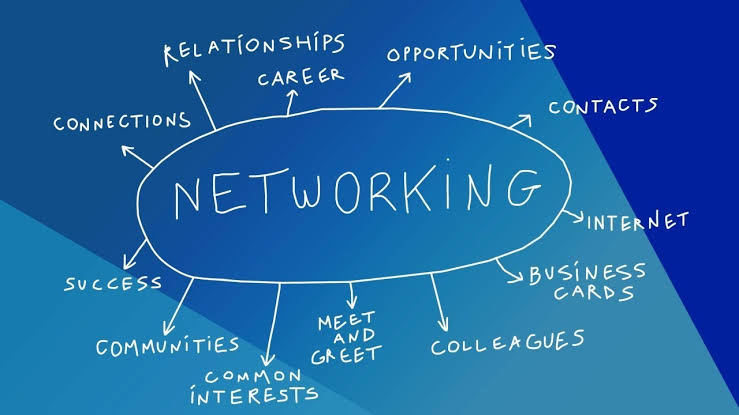Networking is not just about collecting business cards or adding new connections on social platforms. It is a long-term strategy that involves building genuine relationships that can open doors to new opportunities, mentorship, and collaborations. In today’s competitive job market, a strong professional network can be the deciding factor between staying stagnant and moving ahead in your career.
The concept goes beyond just meeting people. It requires maintaining a presence in your professional community, offering value to others, and staying connected over time. This approach ensures you are remembered when opportunities arise.
Setting Clear Networking Goals
Before engaging in networking activities, it is crucial to know exactly what you want to achieve. Without clear objectives, your efforts may lack direction and purpose. Some goals could include finding new job opportunities, expanding industry knowledge, or gaining access to mentors.
By defining these objectives, you can determine the type of events to attend, the people to connect with, and the conversations to engage in. For example, if you are seeking a career change, you might focus on building relationships with professionals already working in your desired field.
Leveraging Online Platforms
In today’s digital era, networking is no longer limited to face-to-face interactions. Platforms like LinkedIn, industry-specific forums, and professional groups have become essential tools for building and nurturing connections.
Creating a well-optimized online profile can significantly improve your visibility and credibility. Regularly sharing relevant content, engaging with posts, and participating in discussions can position you as a knowledgeable professional in your field.
Some tips for using online platforms effectively include:
- Keeping your profile updated with your skills and achievements
- Joining industry-specific groups and contributing to discussions
- Connecting with people after meaningful interactions, not just sending generic requests
Attending Industry Events and Conferences
While digital networking is powerful, in-person interactions still hold great value. Industry events, trade shows, and professional conferences provide an excellent opportunity to meet influential people face-to-face.
When attending such events, preparation is key. Research the attendees or speakers in advance, so you can approach conversations with purpose. Having a clear introduction and a few talking points ready can help you make a memorable impression.
These events are also an opportunity to learn about industry trends, gain fresh insights, and discover job opportunities that may not be advertised publicly.
Building Genuine Relationships
The most effective networking is based on authenticity. People are more likely to remember you if you show genuine interest in them, rather than just focusing on what they can do for you. Building rapport involves active listening, asking thoughtful questions, and following up after your initial meeting.
Instead of making connections only when you need something, try to nurture relationships consistently. Share relevant information, congratulate them on achievements, and offer your help whenever possible.
Following Up and Staying Connected
One of the most overlooked aspects of networking is following up. Sending a short message after meeting someone, thanking them for their time, and reiterating your interest in staying connected can go a long way in building trust.
You can maintain connections by:
- Checking in periodically through email or social media
- Sharing articles or updates relevant to their interests
- Inviting them to future events or professional meetups
Consistency in communication ensures that your relationship stays alive, even if you do not meet frequently.
Giving Before You Receive
A successful networking approach is rooted in the principle of offering value first. Instead of asking for help immediately, look for ways to assist others. This can be through sharing resources, making introductions, or offering your expertise.
When people see you as someone who adds value, they are more inclined to support you when you need assistance. This generosity creates a positive reputation that can open unexpected opportunities.
Using Mentorship as a Networking Tool
Mentorship plays a vital role in career growth, and finding a mentor is often the result of strong networking. Experienced professionals can provide guidance, industry insights, and support during career transitions.
On the other hand, becoming a mentor yourself can also expand your network, as mentees often introduce you to other professionals and opportunities. Both roles create meaningful professional bonds that go beyond surface-level interactions.
Networking Across Different Fields
While it is important to connect with people in your own industry, networking outside your field can lead to fresh perspectives and new opportunities. Interdisciplinary relationships often result in collaborations, innovative ideas, and business ventures that you might not have considered before.
Attending mixed-industry events or joining diverse community organizations can broaden your professional horizon.
Balancing Quality and Quantity
It is tempting to believe that having a large number of contacts automatically leads to better opportunities, but quality often outweighs quantity in networking. A few strong, trusted connections can be far more valuable than dozens of superficial ones.
Focus on building deeper relationships with a smaller group of professionals who share your values, goals, and interests. These relationships tend to be more supportive, long-lasting, and mutually beneficial.
Measuring Networking Success
To ensure your networking efforts are paying off, regularly evaluate your progress. Keep track of how many meaningful conversations you have had, the opportunities generated, and the value you have been able to provide to others.
If you notice that your network is not growing or producing results, adjust your strategies. This might involve trying new platforms, attending different events, or improving your follow-up process.
Staying Consistent and Patient
Networking is a long-term investment that requires consistency and patience. Relationships do not develop overnight, and opportunities often arise when you least expect them.
By continuing to engage with your network, offering value, and staying visible in your professional community, you position yourself for sustained career growth.



